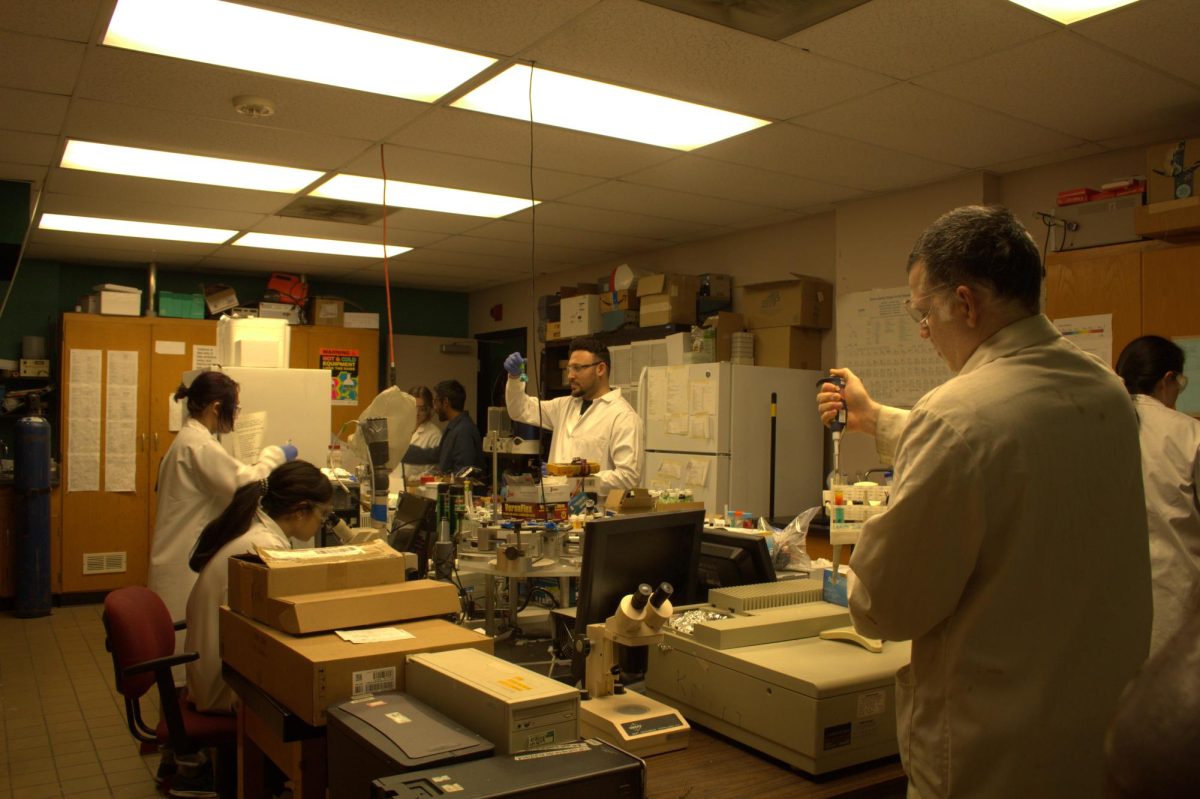Budget standoff not about money, it’s about people
February 1, 2016
For the past seven months, Illinois residents have been forced to stand by and watch Gov. Bruce Rauner and House Speaker Michael Madigan compete in a callous game of the millionaire versus the power broker.
At first, many of us chose sides, eagerly cheering for the wealthy Republican governor who wants to balance the state budget by eliminating millions in funding for human services, or for the Democratic boss who insists that the wealthy pay more taxes.
I have to admit that in the beginning, it was interesting to watch these fierce competitors battle it out in Springfield. It was like watching our own “Game of Thrones,” a kind of political grudge match we hadn’t seen in Illinois for a long time.
Advertisement
But it has gone on too long, and there’s no end in sight. Many of us have reached the point where we don’t care which team wins; we just want the game to be over.
Of course, neither Rauner nor Madigan will budge. But that shouldn’t surprise anyone. In order to qualify for such a sadistic competition, both challengers had to possess unabashed stubbornness, a trait that renders one insensitive to the well-being of his constituents.
If nothing were at stake but bragging rights for the victor, the rest of us probably wouldn’t care if these two egomaniacs battled it out to their political death. But, in this case, there are too many potential casualties — people on the sidelines who have done nothing to deserve the pain and suffering thrust onto them.
We all know that whether Rauner or Madigan emerges victorious, Illinois’ most vulnerable residents will be the biggest losers. The obvious pawns in this game are our poor, our mentally ill, our veterans, our children and our elderly. But ultimately, all of us will pay a price.
The immediate victims are the people who are barely making it from day to day, people who had very little to begin with and are on the verge of having nothing.
We all knew that things were getting worse in Illinois each day that passes without a state budget. Last week, the United Way of Illinois released a survey showing us just how bad things are.
According to the report, 23 percent of the agencies that offer support to struggling residents said they would be hard-pressed to operate at existing levels if the state does not have a budget by March. Already, 85 percent of these support agencies have cut back on the number of clients they serve. Nearly as many have had to cut programs for the mentally ill and the disabled, as well as programs supporting seniors, children and adults seeking education or jobs.
Advertisement*
We all should have compassion for the regular people who are being penalized for the budget impasse. But that’s not what bothers me most about this standoff.
It is clear that Illinois is near its breaking point. Yet, our elected officials in Springfield keep pulling harder and harder on the lever. I fear that once the lever breaks, we won’t be able to fix it.
The longer this standoff goes on, the closer the state gets to a place where the toll is too substantial, both economically and socially, to ever return to normal.
Social services always have been America’s way of extending a hand to citizens who are down on their luck. Public assistance was never intended to be a substitute for hard work or a crutch for those who have no desire to better themselves.
And while some people abuse the system, greater numbers of people use it in the way it was intended — as a short-term supplement that helps them over the hump and back onto their feet. They are the working-poor, the 30 percent of families in Illinois in which at least one person holds a job and takes care of the household. With manufacturing jobs on the decline in Illinois, these people go to work everyday in retail or service jobs where earnings are so minimal that they live on the cusp.
These are the people who are almost always overlooked or forgotten.
Though the political foes don’t agree on the reasons for it, Rauner acknowledged in his state of the state address last week that the average working family is making less than it was eight years ago. And, he pointed out, Illinois is home to the hardest working people in America. No one can argue with that.
But even before the budget impasse, many of these hard-working residents were barely hanging on. A food pantry, medical assistance, home-delivered meals and the chance for a college education gave them the opportunity to remain productive citizens. All it would take is a nudge to knock them over the edge and into deep poverty.
___
(c)2016 the Chicago Tribune
Visit the Chicago Tribune at www.chicagotribune.com
Distributed by Tribune Content Agency, LLC.
Advertisement









